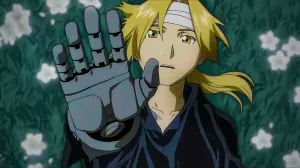
I never served in the military and I haven’t even been to Boston before, but I recognize the characters in this comic. Unlike so many individuals drafted with a set of easy identifiers and characteristics, Ethan, Sully, and Cheryl walk into the first few panels of Bad Karma as fully-realized people, and that’s what makes them recognizable. From conversations in a basement not updated since the early 80s to an awkward Christmas Eve dinner with an unromanticized found family, there is a depth and understanding present that makes these individuals and their relationships read as real. There’s also a high-stakes plot involving an innocent man on death row and some bloody violence on the highway, but writer Alex de Campi and artist Ryan Howe don’t need these exaggerated, genre elements to sell their comic. Bad Karma #1 is a great read from start to finish because it’s built on excellent character work.
Videos by ComicBook.com
The story centers around Ethan and Sully, two veterans struggling with physical and mental trauma, respectively. They are old friends from Southie, and Ethan remains involved with his ex-wife and their children who seem to care as much about his best pal Sully as their ex-husband and father. It’s an interesting dynamic, but far from an innovative one. There is an instantly recognizable aura to the relationships and quirks that form this group existing somewhere along the deteriorating border of middle and working class America. Even when Bad Karma opens its non-linear narrative with a shocking conversation behind bars and a tussle with state troopers, it’s the flashback to this holiday reunion that provides the most engrossing pages of the entire comic.

It’s the underspoken ways in which Ethan and Sully interact with one another and the world around them that form the foundation for this comic, and make returning to the early pages of action all the more exciting. De Campi shows herself to be a careful observer of male friendships as there’s as much to be found in what this pair opts not to say as the actual dialogue bubbles. They carefully dance around issues of medication and past failures, while dishing out blunt humor and interrupting one another. It’s a relationship that runs incredibly deep while engaging in many superficial rituals. Few comics writers since Garth Ennis in his heyday have managed to capture the ways in which masculinity shapes these interaction, but Alex de Campi possesses one word in her vocabulary that most mainstream writers today lack: Subtlety.
Ryan Howe doesn’t lack for subtlety in his characters or backgrounds either. His work evidences the same thoughtful approach, while delivering effective action, drama, and humor when appropriate. Both Sully and Ethan’s reactions to the stock “Thank you for your service” response displays the relationship these men have to their status as veterans, while also bearing out a critique of societal gratitude without serious consideration or action. When the pair are goofing around, they have appropriately broad expressions that sell the jokes and their comfort around one another. Yet embedded in even the broadest moment are plenty of choices and details that develop a deeper history and meaning. The choice of vehicles and interior design, like a wood paneled basement with makeshift shelves, inform readers what social status these men occupy. Their scars and clothing develop a portfolio of how the past impacts the present without ever needing to wink at readers. In the course of 30 pages, readers are provided a tremendous amount of information without a single panel reading in an overstuffed fashion.

Bad Karma is planned to be a roughly 300-page graphic novel when complete and everything in its first entry suggests that the final story will make for an impressive addition to many bookshelves. The story is still suggesting its shape and themes. There is action, intrigue, and familial drama all commenting on elements of masculinity, trauma, and class in America. As these statements begin to play out and readers await new twists from the most plot-driven segments of the comics, the foundation on which all of that will be constructed is already strong. Ethan and Sully are fully formed characters capable of provoking great sympathy, in spite of their violent actions. Wherever this story takes them, they are offer the rare sort of chemistry that makes the plot twist less important than the person it impacts and that alone makes Bad Karma #1 an issue to download today.
Published by Panel Syndicate
On May 6, 2020
Written by Alex de Campi
Art by Ryan Howe
Colors by Dee Cunniffe








